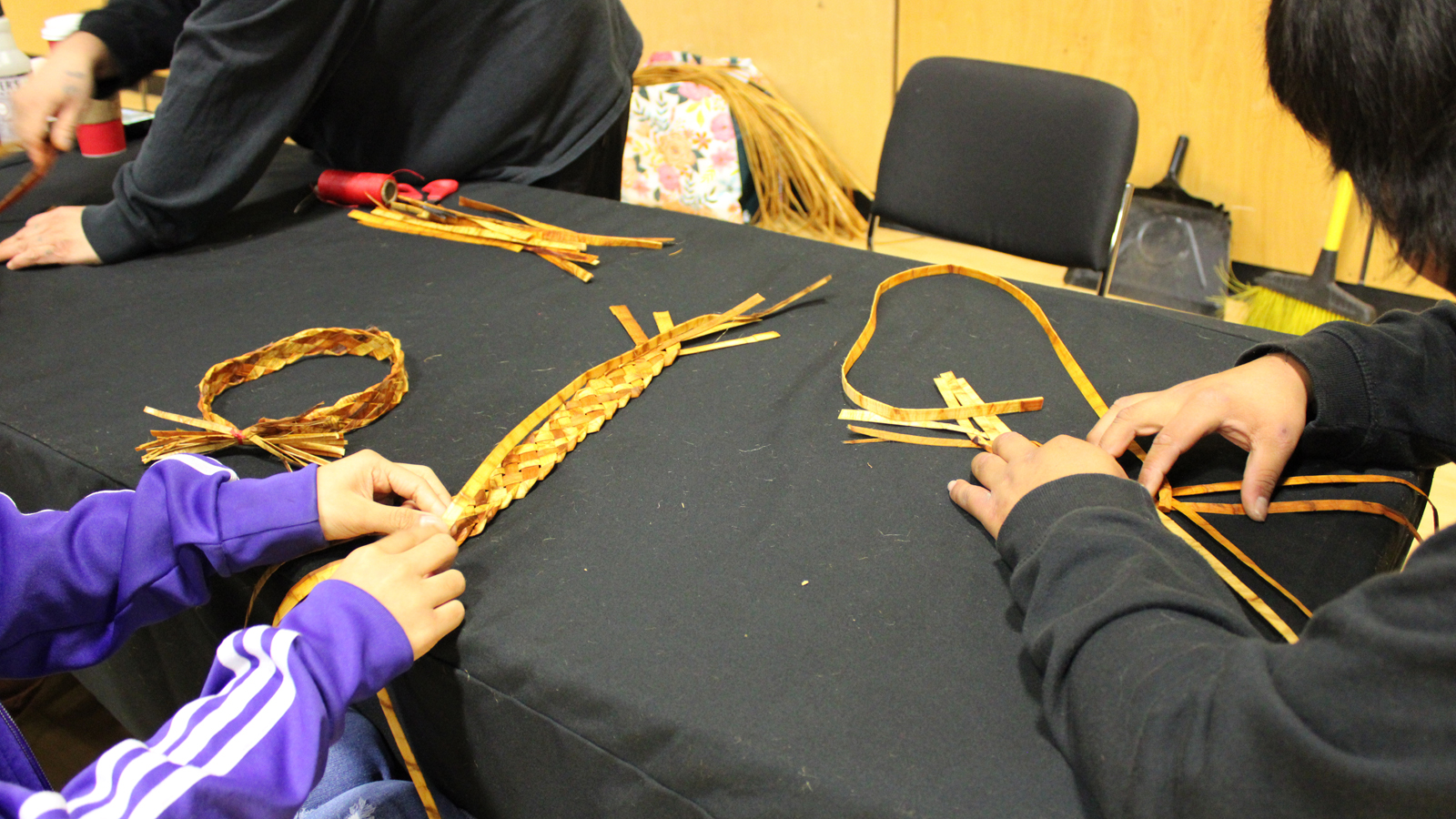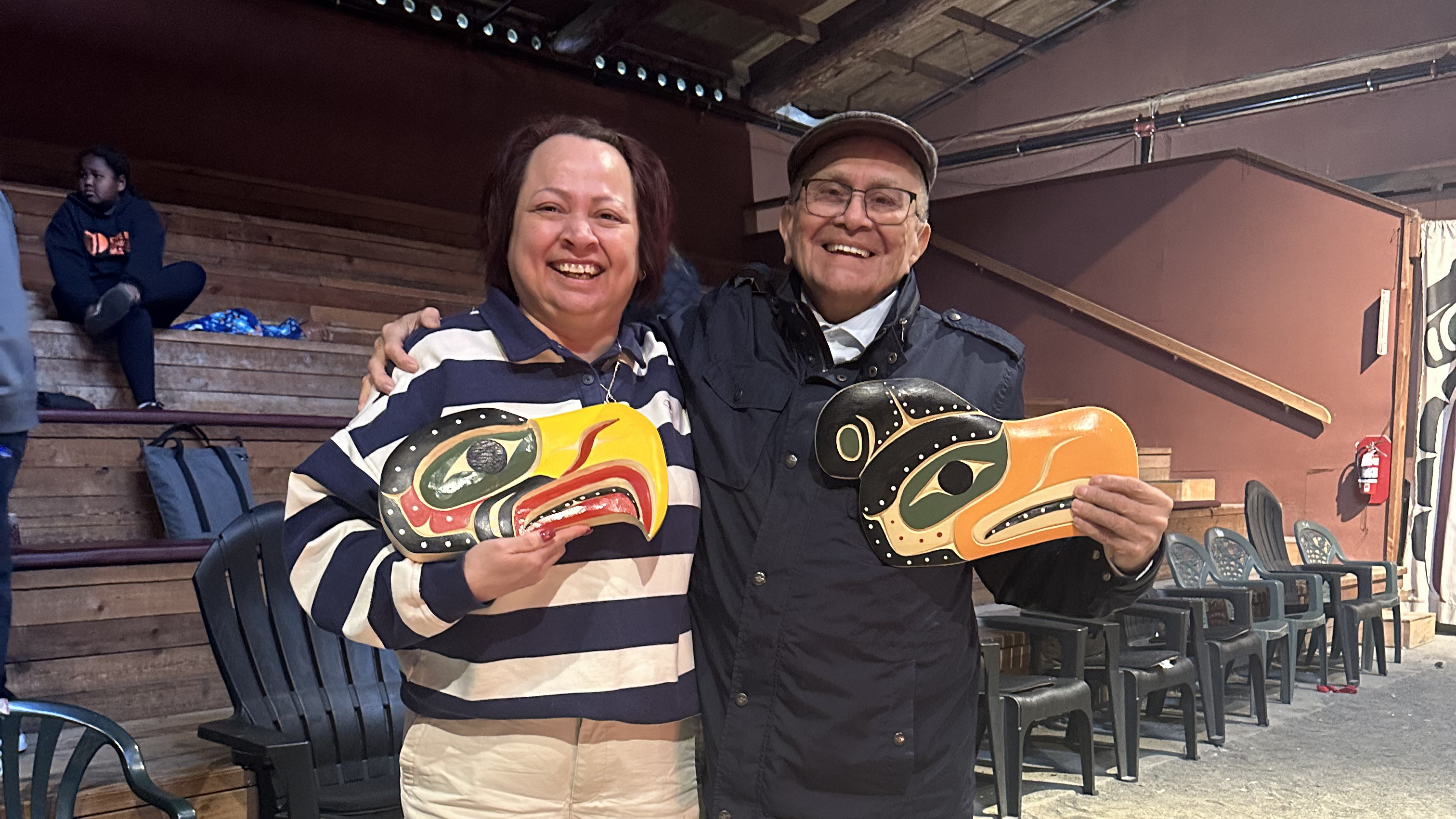Hope, resilience and unity; these themes highlighted the transformative power of cultural heritage in recovery at the Revitalizing Indigenous Heritage to Combat the Toxic Drug Crisis Gathering on March 22 and 23.
Held at Thunderbird Hall and the Kwanwatsi Big House in the Wei Wai Kum Territory, also known as Campbell River, on Vancouver Island, the event created a sacred space to listen deeply, share experiences, and construct pathways to healing.
Hosted by Namwayut Society, Puguma Consulting, and local grassroots leaders, participants engaged in dialogue while listening to emotional storytelling and witnessing inspirational leadership. Keynote speakers such as Dr. Chief Robert Joseph, James Harry Sr., Ernest Puglas, and Rachel Plamondon instilled in the crowd a renewed sense of hope, resilience, and unity, highlighting the transformative power of cultural heritage in recovery.
The event began with a heartfelt welcoming by Chief James Quantell. Following this, Ernest Puglas, a Kwakwaka'wakw artist and carver, encouraged everyone to reconnect with our inner strength, saying, “I ask that you love one another and not judge. Just be a part of yourself."
Dr. Chief Robert Joseph then delivered a keynote address that resonated deeply, reminding us, “Everything starts with you… you could be pivotal… in the despair, the darkness, and the brokenness that we feel about our brothers and sisters facing extreme addictions."
In addition to the powerful speeches and ceremonies, several booths were set up to offer valuable resources and hands-on experiences. The FNHA and Aids Vancouver Island booth shared extensive information and handouts about harm reduction-based health services as well as some giveaways. Other booths featured interactive workshops where attendees could create their own cedar headbands or engage in beading projects, connecting them with traditional practices and community heritage.

After thought-provoking breakout sessions addressing challenges like delayed treatment access and the need for 24-hour cultural supports, day two deepened the focus on healing. The Big House welcomed a moving mourning ceremony honouring those lost, followed by powerful cultural performances from Liǧʷiłdaxʷ youth and local dancers—reminding us that hope and resilience rise through connection and tradition.
Before breaking for lunch on day two, emcee Jason Wilson, manager of economic development at Wewaikai Nation, acknowledged the efforts of Dr. Chief Robert Joseph and Anita Finney on behalf of the FNHA. Both were presented with beautiful carvings made by Ernest Puglas, to honour their commitment and contributions to this crucial work—a touching moment captured in our photos.

A heartfelt thank you goes to all the organizers, participants, and cultural contributors who are helping to reimagine recovery through Indigenous knowledge and compassion.

